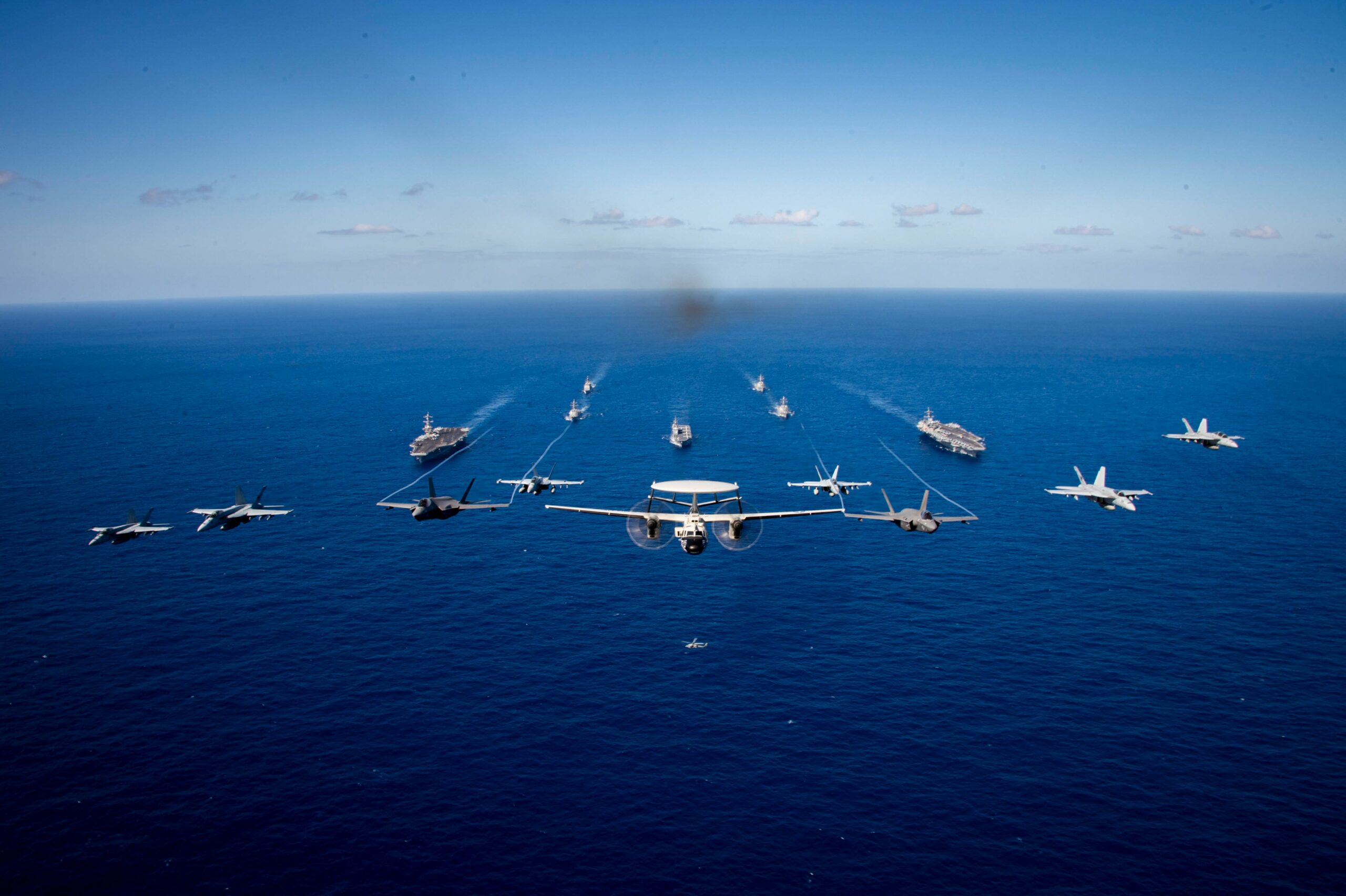What the USA, Japan and the Philippines will do against China

The United States, Japan and the Philippines have decided to intensify security relations in an anti-Chinese way. Tokyo could also join the Aukus pact. All the details
A trilateral summit at the White House between the USA, Japan and the Philippines which gives rise to a steel pact on security in an anti-China key and above all a wide series of agreements of military and economic importance which equally serve to cement the axis between three Countries united by a strong concern for the aggressive behavior of the Dragon.
Axis with the Philippines
There is President Biden's commitment to defend the Philippines from the continuous provocations of the Chinese navy which, despite the unequivocal ruling of an international court eight years ago, continues to make claims on the South China Sea and in particular on the sovereign areas Philippine.
But in addition to the oath to intervene to help the archipelago, the USA enters into a series of strategic and economic agreements with it such as the investment made by Meta in a submarine cable that will connect the USA with the Philippines.
Even more ambitious is the Luzon corridor project which, financed by the Partnership for Global Infrastructure and Investment, America's flagship and main antidote to the Chinese Silk Roads, aims to provide the Philippines with new ports and railways but also with energy clean and semiconductor production chains.
Washington – Tokyo Pact of Steel
But the lion's share of this summit goes to Biden and Japanese Prime Minister Kishida, who are launching what they define as a "new era" of strategic cooperation in which there is room for everything, starting from the joint development of missiles to be used in lunar missions with the clear intention of countering the similar ambitions of China and Russia.
In the joint statement reported by Reuters , the US president underlines that Wednesday's update is the most important update of the US-Japan alliance since its signing in 1951.
The most concrete embodiment of this momentum is the hypothesis of appointing a four-star US commander who will work alongside a Japanese colleague of equal rank in a new unified command structure called upon to preside over all Japanese military operations.
Although the hypothesis is still being examined by the respective ministers, there is already a commitment to proceed in this direction formulated shortly before the summit by National Security Advisor Jake Sullivan.
Strengthen Aukus
But the prospect is also to include Japan in that security pact called Aukus which from 2021 unites the USA, Great Britain and Australia in an anti-Chinese function.
The summit's joint statement refers to opportunities for cooperation between Aukus partners and Japan in developing advanced capabilities and technologies in diverse areas such as quantum computing, AI, hypersonics and cyber.
Microsoft's announcement on Tuesday that it intends to invest 2.9 billion to expand its cloud and AI infrastructure in Japan is therefore no coincidence.
Another result of the summit is the announcement of the partnership between four universities to jointly develop AI projects with private funds provided by various companies including Nvidia, Amazon, Microsoft and Softbank.
Space
Among the agreements signed there are also those that concern space and in particular the US project called Artemis which aims to bring men back to the moon by 2026 in competition with similar projects by Russia and China.
The commitment is that a Japanese astronaut will be the first non-American to make the fateful walk on the satellite's soil on that date.
Bullet trains
The icing on the cake of this new American-Japanese honeymoon is the plan to build on American soil the first high-speed line on which the famous "bullet trains" of the Rising Sun will travel.
As Reuters had anticipated before the summit, Biden's intention was to take advantage of Kishida's presence in Washington to solicit his attention on a project called to connect the Texan cities of Dallas and Houston and which, not surprisingly, is explicitly mentioned in the statement released by the House Bianca after the interview.
“The US Department of Transportation – reads the statement – and the Japanese Ministry of Infrastructure, Transportation and Tourism salute Amtrak's leadership in the development of the Texas Central High Speed Rail project which will use Shinkansen technology”.
The estimated cost of the project varies between 25 and 30 billion and the hope is to also raise private funds to create an infrastructure that would allow travel from Dallas to Houston in just 90 minutes compared to the three and a half hours needed to travel the taken by car.
This is a machine translation from Italian language of a post published on Start Magazine at the URL https://www.startmag.it/mondo/accordo-sicurezza-stati-uniti-giappone-filippine/ on Tue, 16 Apr 2024 06:47:42 +0000.
